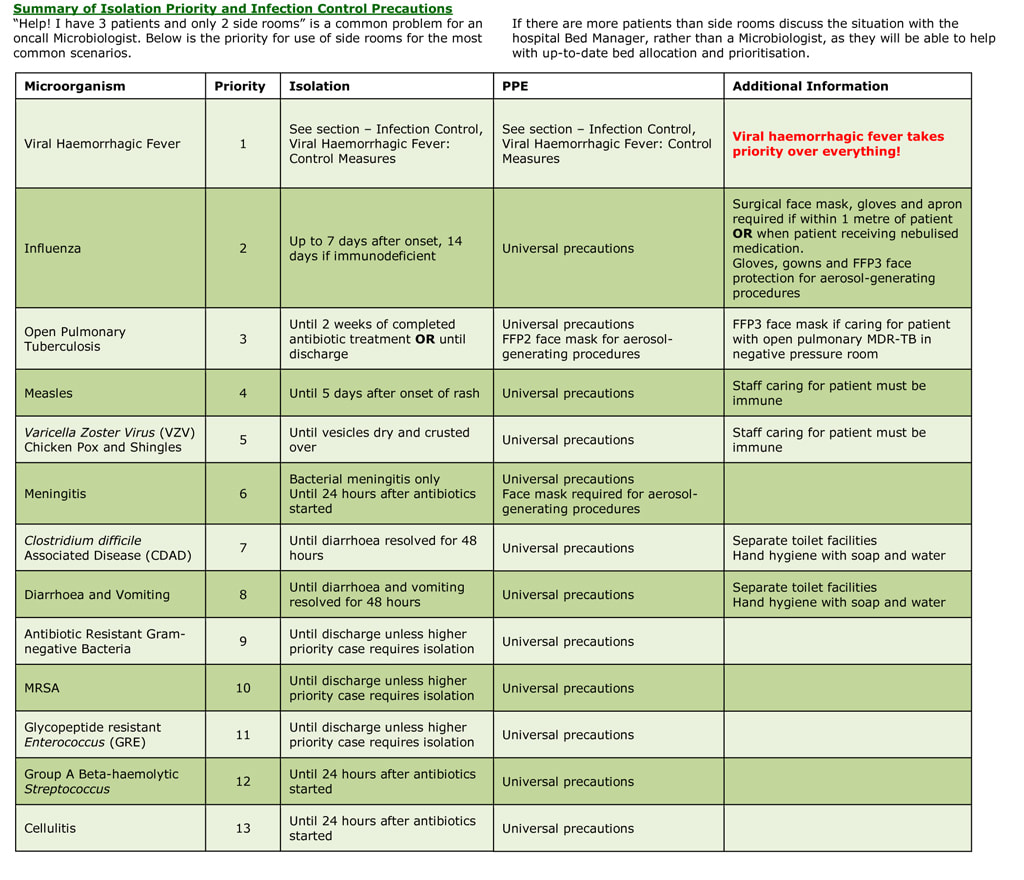What is Infection Control?
Infection control is implemented to prevent the spread of infections within hospitals and other healthcare settings. Infection control policies centre on preventing transfer of infections from patient-to-patient, patients-to-staff and staff-to-patients. The infection control toolkit includes hand hygiene, Personal Protective Equipment (PPE), isolation of patients, environmental cleaning and decontamination, staff vaccination, antibiotic stewardship, surveillance and Root Cause Analysis (RCA).
Root Cause Analysis (RCA)
Root cause analysis (RCA) is the process by which an untoward event can be evaluated
in order to identify learning points, which can prevent that event happening again. All healthcare staff should be prepared to contribute to the RCA process as their action or inaction may have inadvertently been the root cause e.g.
The root cause is the earliest point at which something went wrong leading to the untoward event. RCA is a bit like a young child continuing to ask “Why?” They keep asking “Why?” until there are no more answers to give. In the case of RCA this point is usually the root cause. RCA is commonly used to investigate cases of MRSA bacteraemia and Clostridium difficile associated disease (CDAD) in the NHS.
in order to identify learning points, which can prevent that event happening again. All healthcare staff should be prepared to contribute to the RCA process as their action or inaction may have inadvertently been the root cause e.g.
- The cleaner who fails to wash all the surfaces in a side-room
- The nursing staff who fail to inform another department of a patient with an infection control risk
- The physiotherapist who washes a tracheostomy tube in a sink
- The doctor who prescribes the wrong antibiotic
- The maintenance staff who fail to repair the hand wash sinks
- The theatre staff who fail to check the air flow ventilation routinely
The root cause is the earliest point at which something went wrong leading to the untoward event. RCA is a bit like a young child continuing to ask “Why?” They keep asking “Why?” until there are no more answers to give. In the case of RCA this point is usually the root cause. RCA is commonly used to investigate cases of MRSA bacteraemia and Clostridium difficile associated disease (CDAD) in the NHS.

Topics in Infection Control:
All these topics are covered in the book...Ready to buy your copy? Click here to buy your copy of "Microbiology Nuts & Bolts" Its updated and amazingly only slightly larger considering its got 1/3 more in it! (11cmx18cmx2.5cm).
- What is Infection Control?
- Root Cause Analysis (RCA)
- Example of the RCA Process - A patient gets CDAD
- Universal Precautions and Hand Hygiene
- Personal Protective Equipment (PPE)
- Summary of Isolation Priority and Infection Control Precautions
- Influenza
- Tuberculosis (TB)
- Multidrug Resistant Tuberculosis (MDR TB)
- Respiratory Spread Viral and Bacterial Infections
- Clostridium difficile Associated Disease (CDAD)
- How Clostridium difficile can Spread in a Ward Environment
- Diarrhoea and Vomiting (D&V)
- Multiple Antibiotic Resistant Gram-negative Bacteria
- New Antibiotics for Treating Resistant Gram-negative Bacteria
- Meticillin Resistant Staphylococcus aureus (MRSA)
- Panton-Valentine Leukocidin (PVL) Positive Staphylococcus aureus
- Glycopeptide Resistant Enterococcus (GRE)
- Viral Haemorrhagic Fever (VHF)
- Needlestick Injuries
- Needlestick Injury HIV PEP Flowchart
- Outbreaks
All these topics are covered in the book...Ready to buy your copy? Click here to buy your copy of "Microbiology Nuts & Bolts" Its updated and amazingly only slightly larger considering its got 1/3 more in it! (11cmx18cmx2.5cm).

